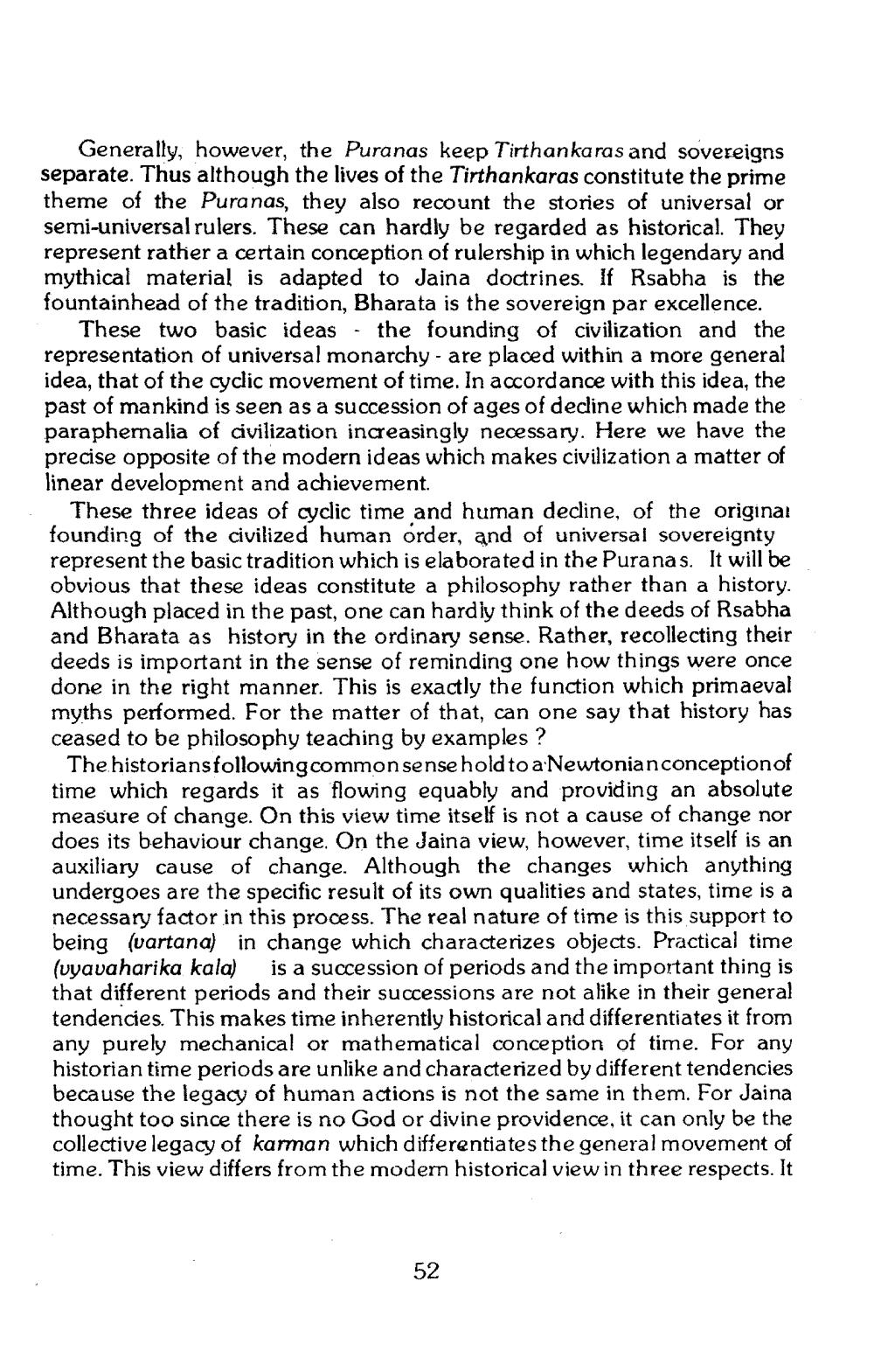________________
Generally, however, the Puranas keep Tirthankaras and sovereigns separate. Thus although the lives of the Tirthankaras constitute the prime theme of the Puranas, they also recount the stories of universal or semi-universal rulers. These can hardly be regarded as historical. They represent rather a certain conception of rulership in which legendary and mythical material is adapted to Jaina doctrines. If Rsabha is the fountainhead of the tradition, Bharata is the sovereign par excellence.
These two basic ideas the founding of civilization and the representation of universal monarchy - are placed within a more general idea, that of the cyclic movement of time. In accordance with this idea, the past of mankind is seen as a succession of ages of decline which made the paraphernalia of civilization increasingly necessary. Here we have the precise opposite of the modern ideas which makes civilization a matter of linear development and achievement.
These three ideas of cyclic time and human decline, of the original founding of the civilized human order, and of universal sovereignty represent the basic tradition which is elaborated in the Puranas. It will be obvious that these ideas constitute a philosophy rather than a history. Although placed in the past, one can hardly think of the deeds of Rsabha and Bharata as history in the ordinary sense. Rather, recollecting their deeds is important in the sense of reminding one how things were once done in the right manner. This is exactly the function which primaeval myths performed. For the matter of that, can one say that history has ceased to be philosophy teaching by examples?
The historians following common sense hold to a Newtonian conception of time which regards it as flowing equably and providing an absolute measure of change. On this view time itself is not a cause of change nor does its behaviour change. On the Jaina view, however, time itself is an auxiliary cause of change. Although the changes which anything undergoes are the specific result of its own qualities and states, time is a necessary factor in this process. The real nature of time is this support to being (vartana) in change which characterizes objects. Practical time (vyavaharika kala) is a succession of periods and the important thing is that different periods and their successions are not alike in their general tendencies. This makes time inherently historical and differentiates it from any purely mechanical or mathematical conception of time. For any historian time periods are unlike and characterized by different tendencies because the legacy of human actions is not the same in them. For Jaina thought too since there is no God or divine providence, it can only be the collective legacy of karman which differentiates the general movement of time. This view differs from the modern historical view in three respects. It
52




